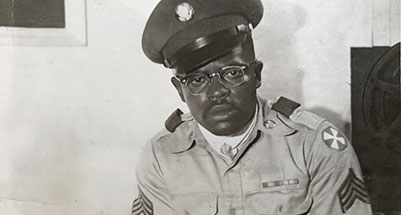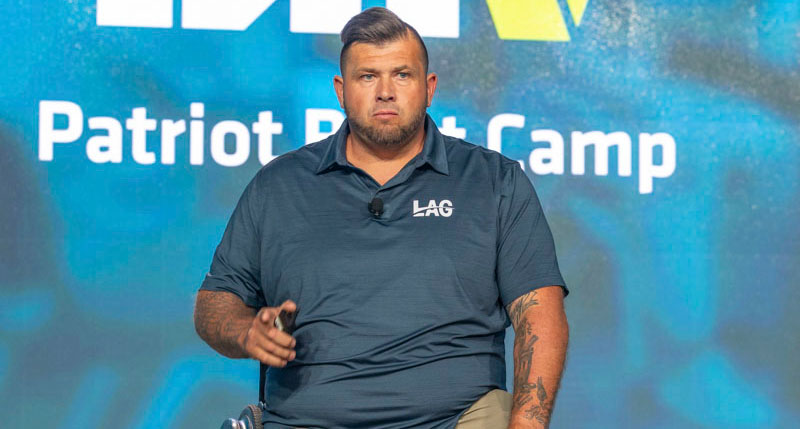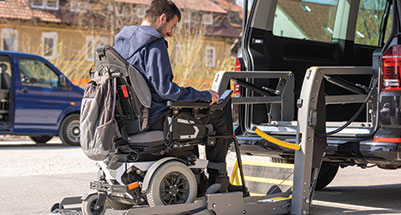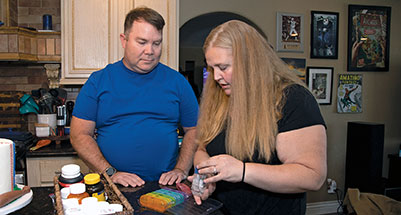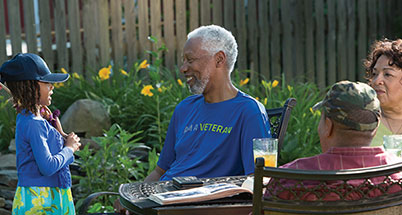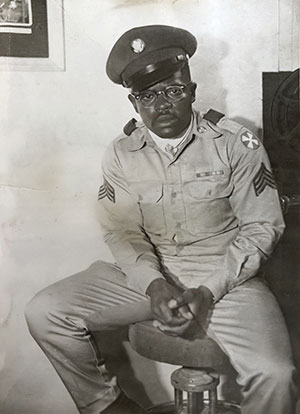
Just 13 steps separate the first and second floors of the Duffies’ home, but to 93-year-old Braven, it might as well be Mount Everest. The Army veteran, who served in the Korean and Vietnam wars, has been known to collapse suddenly and without warning, stirring fears of serious injury or even death on the stairs.
With his bedroom and bathroom upstairs, Braven had to climb up and down the staircase for life’s most basic necessities, such as eating and leaving the home for medical appointments. To protect him, his son Winfred and his daughter-in-law Rena would stand in front of and behind him so they could catch him as he carefully navigated those steps.
“He was up and down those steps a lot,” said Rena. “That’s when we thought, we have to make a change.”
Braven received service connection for narcolepsy, a disorder characterized by excessive daytime sleepiness, in 2004, thanks to DAV benefits advocates. His disorder also comes with cataplexy, a hallmark symptom of narcolepsy that includes sudden and brief loss of muscle control.
“He’ll fall out almost like a seizure,” said Rena. “So, if he’s standing and has one of those attacks, he’ll fall down.”
However, when the Duffies sought help from the Department of Veterans Affairs for Specially Adaptive Housing (SAH) grants, they were consistently denied. It wasn’t until they contacted DAV that they were able to make additions to the home that protected Braven and significantly increased his quality of life.
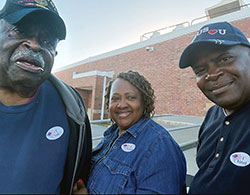
Braven earned those benefits during the Korean War while assigned to an artillery unit above the 38th Parallel. Today, he recalls the tumultuous uproars of American cannons.
“The loudness made me half deaf; I can’t hear well, and I can’t think like I’m supposed to,” he said.
Despite this potentially debilitating condition, Braven continued to serve. Following a short break in service, he served in Vietnam and Germany until retiring in 1976, in part, from complications of narcolepsy.
“I got out, raised my family and came to my son’s [house] because I was no longer able to live by myself,” said Braven. “I was a hazard to myself.”
Recognizing that keeping him on the second floor was unsustainable and dangerous, Rena and Winfred began searching for options. That’s when they decided to reach out to DAV again in April 2024 and contacted National Service Office Supervisor Mark Donberger in Wilmington, Delaware.
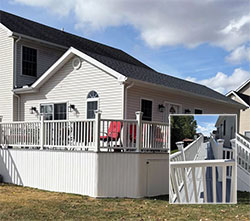
“They kept asking for the grant, but they kept getting denied because cataplexy is not one of the black-and-white conditions to authorize an extension to a home,” said Donberger. “There’s certain things they allow, but for mental health or neurological conditions with the brain, the VA isn’t normally responsive to that.”
Donberger secured benefits through VA Aid and Attendance, another assistance program the Duffies had been denied, unlocking additional monthly payments for qualified veterans. He did so with a Supplemental Claim, one of three ways for veterans to dispute a decision, by submitting new evidence.
“The veteran loses control of his legs and feet. Other parts of his body do cause issues as well. He cannot be left alone and needs assistance for routine movement,” Donberger wrote in the Supplemental Claim.
For the grant, Donberger suggested filing an appeal. During a hearing at the Board of Veterans’ Appeals, Rena spoke in detail to the judge, testifying on the severity of Braven’s narcolepsy.
“She explained exactly what happened, and I continued saying the cataplexy makes the narcolepsy a lot more serious,” said Donberger. “He was in fear for his life; they were in fear for his life.”
When the final decision granting Braven the SAH funds came down on Feb. 26, 2025—one year to the day of their first denial—the Duffies were elated.
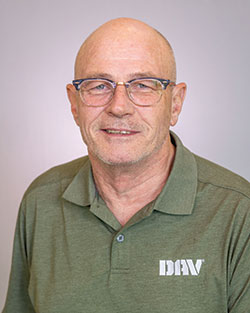
“I knew I was eligible for something besides going into a nursing home,” said Braven.
The Duffies are particularly appreciative of Donberger’s efforts in navigating the dizzying world of VA claims.
“We just kept running into brick walls,” said Winfred. “Our frustration was just all of the bureaucracy and red tape, which was a major part of our frustration. But Mark got it done.”
Now, Braven lives on the first floor in an addition built using the grant money. Braven now has safety and privacy, and negotiating those 13 pesky stairs is a thing of the past, all thanks to DAV.

